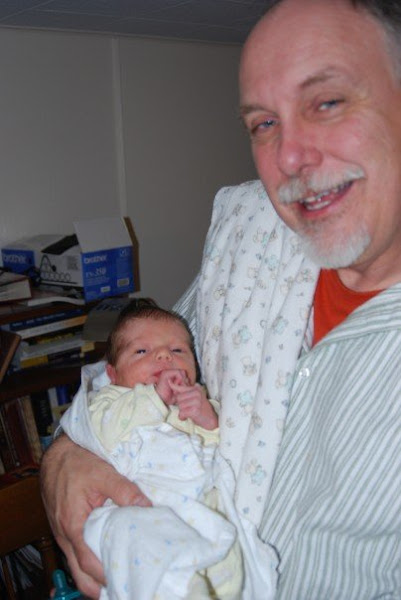I never got around to reading that famous book "Generation to Generation" by Edwin Friedman until just now. Friedman was the rabbi and therapist who adapted family systems theory to congregational life. He was a real guru from the time the book came out around 1985 to his death in 1994. Churches like families are systems, he argued. You can never deal with one component of them in isolation from the rest of the system. As St. Paul said, what happens to one group or person in the Body affects everybody.
There's way too much in Generation to Generation to deal with in a few sentences. I'm still just starting to get a handle on the ins and outs of systems thinking. But one of Friedman's points is that we can rarely change a system by directly trying to alter the behavior of people directly. What leaders need to do is focus on their own self-differentiation -- their own ability to act within the system without being controlled by it -- to act out of a clear sense of self and not simply react to what's happening. When leaders do this in a nonanxious way, they automatically make the system change. Systems resist change, even when it's unhealthy to stay the way they are. Leadership is about enabling a system to get "unstuck" and move ahead.
It's made me wonder what large numbers of more or less non active affiliates means about a congregational system. One of the things I worry about in talking about affiliates is the impression that everyone's fine where they are, that the fact that a church's membership is two or three times bigger than its Sunday attendance is no big deal. I have never meant to imply that. My hope is that keeping connected to affiliates will open the door to their own rediscovery of the riches of Christ.
I'm doing a lot of soul-searching right now, though, about what it means to be a leader in this context. At this point, I haven't got much more to offer than that question.
Wednesday, November 21, 2007
Subscribe to:
Post Comments (Atom)


1 comment:
Having studied directly with Ed Friedman, I was quite intrigued by your own comments here. Indeed, it is, in essence, the capacity, ability, and willingness (three different things!) to identify for oneself a direction that defines for others the possible future, that enables others to adapt and move forward. The issue of self-differentiation implies of course, not so much what will 'play to the crowds' as what is authentically compelling to you in yoru role which of course will in and of itself be compelling to others. As a practitioner consulting with leaders in a variety of organizations, I can say the key is to pay attention to one's role, that is . . what one is called upon to fulfill the responsibilities and aspirations inherent in one's role which in and of itself will be recognized as the authentic stuff of leadership, 100% of the time.
Rob Schachter
Rob@RBSconsulting.org (web site too)
Post a Comment